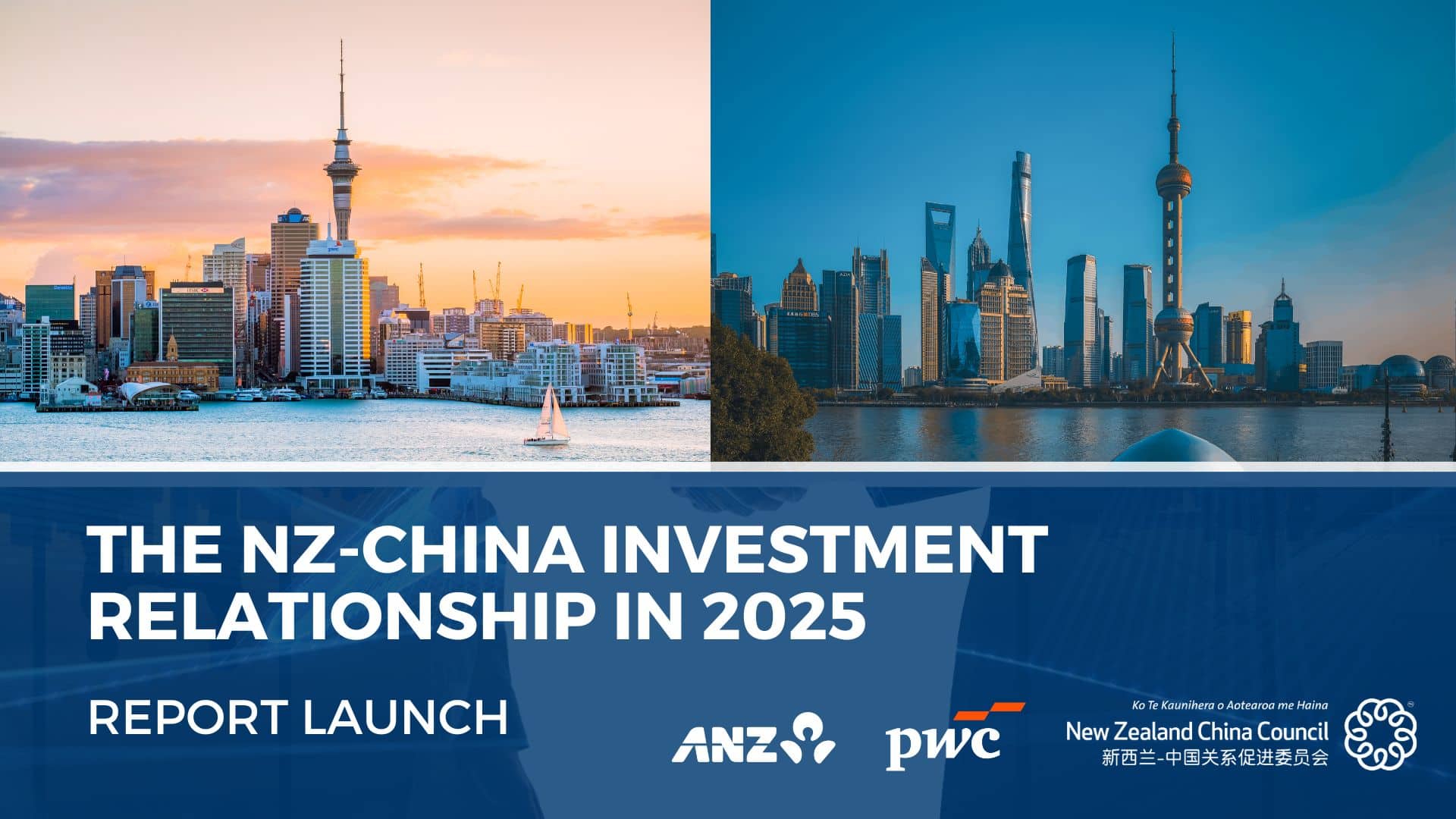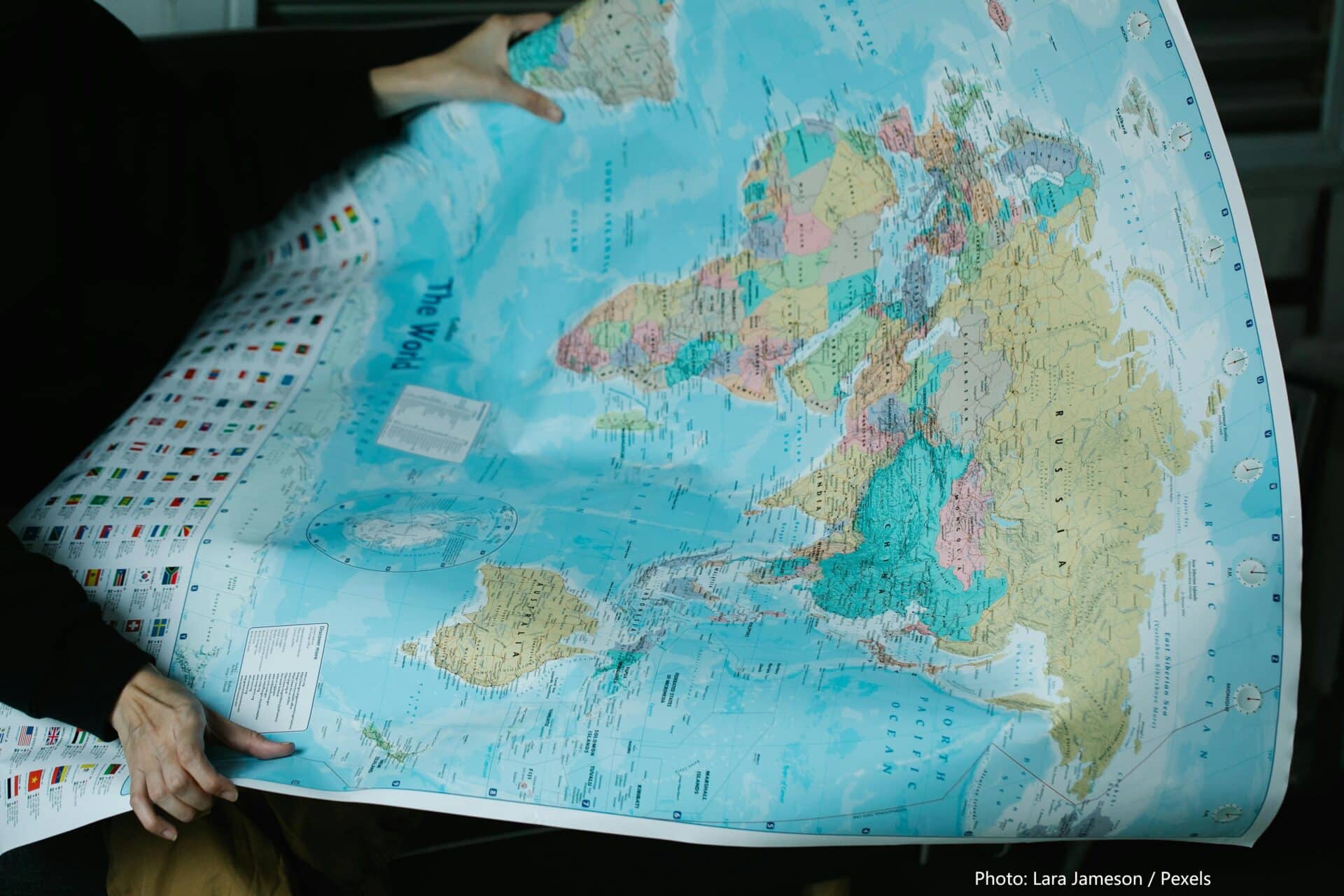Can China’s ‘painful transition’ succeed?
This article by Sam Sachdeva was originally published on newsroom.co.nz on 21 July 2024.
Cover Photo: Sam Sachdeva. With China’s economy hitting headwinds, businesses – including those in NZ – are cautiously watching to see the Chinese government’s response.
With slowing growth and rising headwinds, China’s economy is under the microscope. Sam Sachdeva talks to those inside the country about the main risks and opportunities, and the grounds for optimism about the path ahead.
Walking the streets of Shanghai, it’s easy to brush off talk of China’s economic malaise.
Locals bustle along the city’s pedestrianised Nanjing Road shopping street with bags of purchases, a gentle breeze helping to keep the June heat at bay.
Inside a Sichuan hotpot restaurant, patrons chat merrily while dunking an array of meats and vegetables into the fiery soup base, oil rising to the top and occasionally splattering onto the tables.
But bubbling beneath the surface, there are less positive signs when it comes to the country’s economy as it tries to return to its pre-pandemic heights.
Official data released last week by China’s National Bureau of Statistics showed GDP grew by 4.7 percent in the second quarter of 2024 – lower than predicted, and the slowest rate of growth since the first quarter of 2023.
The country’s economic situation was among the key topics of discussion at the Chinese Communist Party’s third plenum (also last week), a five-yearly meeting to map out the country’s future direction.
So where is the country’s economy heading – and what might its direction mean for New Zealand?
‘A painful transition’
Feng Chucheng, a founding partner at Beijing-based independent research firm Hutong Research, says the party has been trying to move away from some of its traditional economic drivers, such as the property market and infrastructure, towards consumption and innovation.
“It’s going to be a hard transition, it’s going to be a painful transition … but it is a transition that’s necessary because you no longer have the fundamentals to support property-driven growth,” Feng says.
The collapse of giant Chinese property developer Evergrande in 2021, after the Chinese government tightened borrowing regulations, left many Chinese with unfinished apartments and damaged wider economic confidence.
The impact has not been evenly felt throughout the country, Feng says.
In larger cities like Beijing and Shanghai, the total asset value of homeowners dropped by as much as 40 percent. But in the lower tier cities, people aren’t as pessimistic, with the income of ‘peasant workers’ growing at a faster rate than the urban middle class.
“These people, they are the fundamentals, they are the grassroots, and they are the key source of regime stability, so you have to make them happy, which means that you have to give them hope for upward mobility.”

It’s a point supported by Zhou Mi, a senior research fellow at the China Academy of International Trade and Economic Cooperation (which sits within the Chinese commerce ministry).
“In the past decades, we have almost resolved the problem of development with speed. So how can we try to reduce the gaps in society, between different regions … and between different kinds of jobs?
“We are not trying to make everybody the same, but there should be more equal ways for us to try and to address the differences, and it’s not that easy.”
Another issue, says Zhou, is finding jobs for the record levels of Chinese college graduates – more than 10 million each year – who are looking for employment to match their skills; according to a recent Nikkei story, fewer than half of prospective graduates had received job offers this year.
The country is also dealing with a rapidly ageing population and record low birth rates – another reason to move away from an economy reliant on people buying new houses, Feng says.
To combat these factors, the CCP has begun to put an emphasis on what it calls “high-quality development”, focusing on innovation and high-tech manufacturing.
The robot dogs and humanoids at Hangzhou’s Unitree Robotics would presumably fit the bill. The creatures bound up stairs, perform cute dances and withstand kicks and shoves from the workers controlling them.
The technology is undoubtedly impressive, if a little terrifying: absent from display is the robodog variant that carries a machine gun on its back and featured in a Chinese military exercise earlier this year, a reminder of the sometimes thin line between civilian and military applications of dual-use technologies.

With the US and other nations imposing export controls on a range of Chinese goods, Feng says some Chinese companies are choosing to move their own production out of the country to places like Indonesia and Vietnam – reducing the impact of sanctions but also reducing costs.
“You have a shrinking population, you don’t have enough labour, in the coastal areas the labour cost is already increasing a lot. So for some of the factories, especially manufacturing factories that were based in the coastal areas of China, it makes more sense now for them to move to Indonesia anyway, with or without US sanctions or export controls.”
Tax reform is another area of major discussion, Feng says, with local governments currently incentivised to create overcapacity due to the taxes they collect on production rather than consumption.
“If the local government wants to have more financial resources and revenue sources, they want to drive up VAT revenue, and that means they want to encourage overcapacity, overcompetition between different industries. Even if my neighbouring province has this factory, I want to build the same factory, because that gives me additional VAT revenue.”
Kiwi businesses operating in China remain confident about the longer-term picture, even in the face of current headwinds.
Purely on the numbers, the start of 2024 has been a mixed picture for Kiwi exporters: exports of dairy, forestry, fruit and seafood were up for the first four months of the year compared to the same period in 2023, according to the Ministry of Foreign Affairs and Trade, while those of wine, meat and infant formula were down.
But Anna-May Isbey, the executive director of the NZ Business Roundtable in China, says New Zealand companies have consistently rated three factors above others when it comes to the value of the China market: scale, market opportunities, and market profitability.
“With the Prime Minister talking about wanting to double the value of exports over the next 10 years, China is going to be integral to New Zealand being able to achieve this.”
While there is increasing wariness among businesses about China’s economic outlook, there are other trends that could work in New Zealand’s favour, such as growing middle-class populations outside of the major cities from the ongoing urbanisation process.
Even the ageing population is not entirely negative, Isbey says.
“This obviously does present challenges to New Zealand businesses, but it also provides opportunity for those that can pivot their branding and their products to cater to these consumer segments. We’re seeing New Zealand health brands making specific supplements for this age group, we’re seeing New Zealand dairy brands who might have been investing more into infant formula now making products specific to this older generation in China.”
Roundtable chair Mark Anderton says the Chinese government’s decision to add New Zealand to its visa waiver programme will make life easier for businesses who have sometimes struggled with the logistics of bringing staff to China at short notice.
“Taking that obstacle away is good, taking away the cost is good, and just the admin – it’s one of those tasks that is frustrating.”
Anderton says businesses are now keen for New Zealand officials to reciprocate, with long delays in issuing visas to Chinese business travellers (and Chinese travellers in general) a growing concern.
Zhou and Feng both err on the side of optimism when it comes to China’s longer-term outlook.
Zhou says China’s urbanisation rate is still relatively low, leaving plenty of room for growth, while the country has shown its ability to undertake regional development in recent decades.
Feng notes many Chinese have built up their savings, which if “unleashed” could boost economic growth – if only they can be persuaded to part with their cash.
“This is about a mentality change, because for 30 years, your mindset has been, ‘OK, I’m saving money to buy houses’, and then the government is telling you the housing market is going down and down and down. So you need a shift of your mentality, the shift of the whole population’s mentality.”
The author’s trip to China was organised and funded by the NZ China Council and the Chinese People’s Institute of Foreign Affairs, an official Chinese government think tank.












 MENU
MENU
